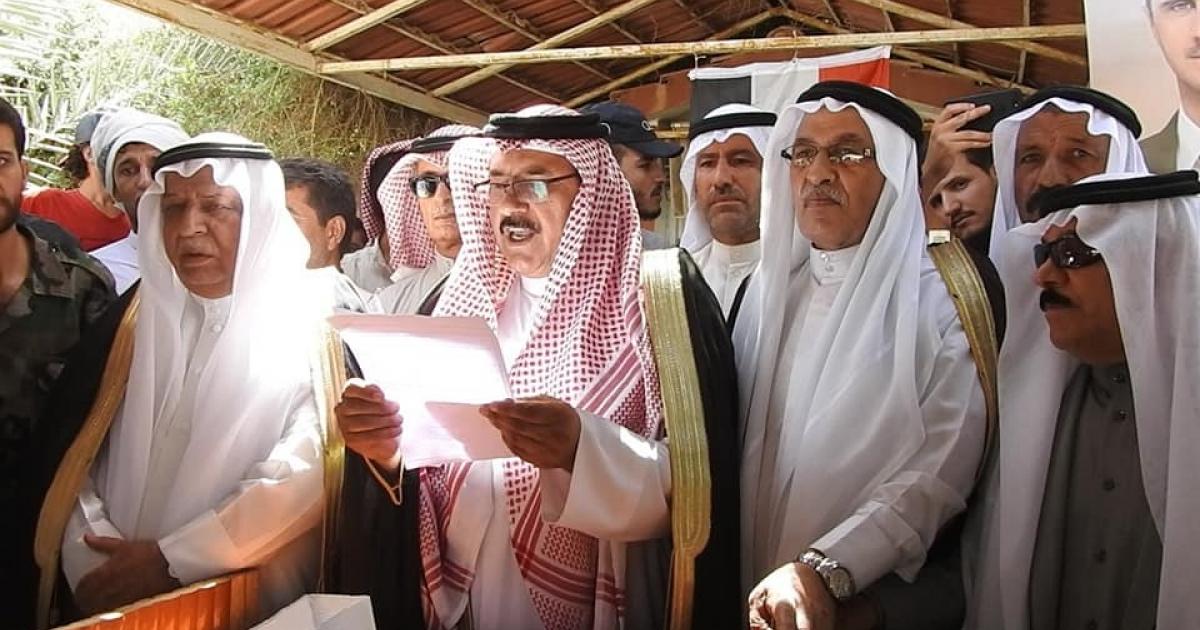Tribes and clans were main actors in Arab political developments during 2021. In eastern Sudan, tribes confronted the central government over issues of unequal development. In Libya, tribes were a major player in mobilization and support for presidential and parliamentary elections scheduled for December 24th. They also played a central role in Yemen, as tribes resisted armed militias, and in Iraq, where they preserved a sense of Arab identity, even as Kurdish and Persian influence grew. Tribes and clans have also endeavored to find settlements, with both the Kurdish Syrian Democratic Forces and the Syrian regime competing to win over the clans in the country’s east, and exposed outlaws.
Tribal issues can therefore be said to reflect the major concerns in the Arab region over the course of 2021, as illustrated below:
Highlighting unbalanced development: In Eastern Sudan, the Beja tribes (who constitute one of the largest segments of the population) threatened on December 4th to resume blocking roads and disrupting seaports, as well as derailing the agreement reached between the central government and representatives of eastern Sudan in 2020. It is worth noting that previous demands made by these tribes in September were not met. These demands center on ending marginalization and promoting the development of the eastern regions, as well as canceling the Eastern track of the Juba Peace Agreement. There are also political demands for a more inclusive government and dissolving the current government and forming a military council to run the country for a transitional period, to be followed by elections.
Since the deadline set by tribal leaders has passed, Sudan is likely witness closures in the Port Sudan and barricades across several cities and points located on the main road, through which exports and imports pass, and the closure of oil export and import routes. This would lead to severe financial losses for the Sudanese economy, as well as impacting various sectors in eastern Sudan itself. This has created divisions in the area over such actions and has escalated the intense competition between the Beni Amer and Beja tribes for influence in the region.
Seeking gains through the electoral process: In Libya, tribes have been active in mobilizing support for the presidential and parliamentary elections that are scheduled to take place on December 24th. As tribes constitute the primary building block of Libyan society, they have been keen to ensure elections will realize national aspirations of stability. Libya’s Tribal Council therefore objected to the exclusion of Seif al Islam Ghaddafi from the elections, fearing this would destabilize the whole process.
In a statement on November 25, the Council stated that “dark forces and colonialists, not wishing the country to be stable, are working to exclude Dr. Seif Al-Islam Gaddafi from the list of candidates for the presidency of the country through various means, taking advantage of their control over the capital, Tripoli, and all aspects of the state, unaware of the consequences of this behavior.” They further warned “those in charge of the judiciary, the Attorney General, and the commission” against excluding Gaddafi and vowed for those who interfere in the affairs of the judiciary and the commission that “prejudice and manipulation of the electoral process will have dire consequences.”
In Algeria, tribes expressed their political aspirations in the opposite manner, by boycotting parliamentary elections, which were held on June 12. This has been their consistent position in most elections, and carries a message of major dissatisfaction in the tribal areas with government policies, and the desire of some to secede from the motherland, as demanded by the Kabylie Independence Movement (MAK).
On November 30, the Tribal Villages Committees published a list on social digital platforms claiming the indiscriminate arrest, intimidation, and imprisonment, of women, men, intellectuals, artists, politicians, and even ordinary citizens. The motive behind doing so was to dismantle networks belonging to a political movement, classified by the government as a terrorist organization, because it explicitly demands the secession of the Kabylie region from the rest of the country. Consequently, an international arrest warrant was issued for the head of the interim tribal government, Farhat Mhenni, who is residing in France.
Resisting the hegemony of armed militias: In Yemen, the tribal gathering in Shabwa governorate on November 16th called for the confrontation of the Houthi militia. This occurred after Muslim Brotherhood forces in the governorate handed over the Baihan Directorate, west of the governorate, without a fight. Tribal elders said that “the handover of Baihan at this critical time is a message to all the sons of Shabwa to stand and stop this dangerous scheme and prevent the handover of their areas at any cost.” This showcases the collapse of the security system and the rampant corruption within government facilities, during a time of rising poverty and unemployment among young people in Shabwa.
Similarly, some Yemeni and Arab media outlets reported lately that the Houthi militia kidnapped and murdered a number of tribal sheikhs in governorates such as Amran, Hajjah, Sana’a, Taiz, and Ibb, over their refusal to mobilize recruits to fight with the militia, to compensate for shortages in the ranks of its fighters. This could explain statements by the international community, the United Nations, and UN and US envoys condemning forced recruitment operations carried out by the militia in its areas of control. The statements branded these activities as war crimes and crimes against humanity, and called for including perpetrators on terrorist watchlists, and prosecuting militia leaders in international courts.
Preserving a sense of Arab identity: Iraq is a prime example of this. A conference was held in Baghdad on September 21, in which the participants demanded the establishment of a tribal Arab center to preserve clans’ identity. This would lay the groundwork for the Arab Tribal Cooperation Council as national borders are manmade, and tribes are an extension of their counterparts in other Arab countries. This reflects the social weight of tribes in periods of transition.
Establishing local settlements in conflict zones: The Syrian Democratic Forces militia held a meeting with dignitaries and tribal sheikhs from different regions of Al-Hasakah governorate on November 27. The meeting was held to listen to the demands of people in the region and consult with the sheikhs and dignitaries regarding the release of detainees on various charges, such as being an ISIS member and working with militias loyal to Turkey. They also discussed improving living conditions providing basic services and supporting the agricultural sector. This coincided with attempts by the Syrian regime to reach “local” settlements in Deir ez-Zor.
In conclusion, it has become evident that tribes in the Arab world are taking on expanding roles, which include making demands on central governments to redress their marginalization , working to improve their representation in government, helping realize national objectives, such as referendums , taking a more active role in confronting armed militias, and finally, strengthening trans-border links between other tribes across the Arab world.


